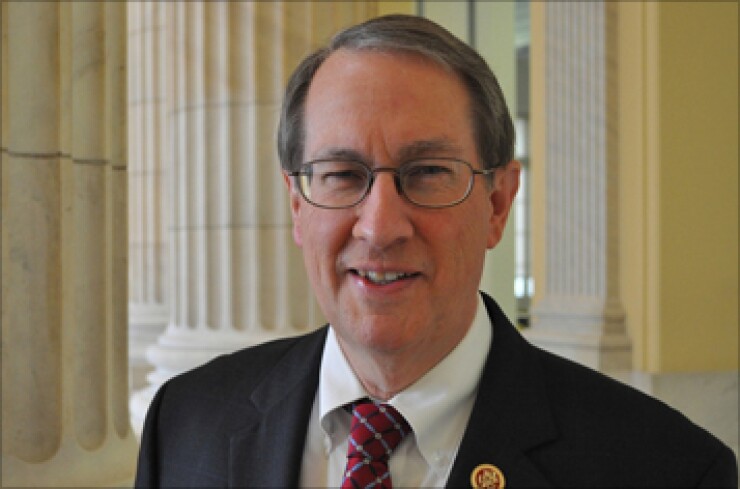
WASHINGTON – A coalition of more than 100 businesses penned a letter to Rep. Bob Goodlatte, R-Va., supporting his draft online sales tax bill that would be based on "hybrid origin-sourcing," while a tax policy expert said the proposal would not quell the debate on how to tax Internet businesses.
In their letter, which was sent Sept. 1 to Goodlatte, the chair of the House Judiciary Committee, the 107 businesses called the Online Sales Simplification Act of 2016 a "marked improvement" over past online sales tax bills that would reduce regulatory hurdles to online, catalog and other remote sellers.
"This legislation, as currently drafted, is clear, fair and simple," the coalition wrote. "The result is exactly what is required to level the playing field for all stakeholders. This will go a long way toward protecting interstate commerce from unchecked taxation and regulation without representation, a bedrock principle upon which this country was founded."
The coalition said it welcomes the idea of only being subjected to audits in states where they have a physical presence, which it said would eliminate additional costs for software systems and further sales tax compliance.
Under the Goodlatte draft, each participating state would identify a single sales tax rate for remote sales. Also, the draft would define "physical presence," which the coalition said it supports.
"The bill would tame the chaos of multiple states reaching across their borders and should avoid many of the conflicting court decisions and state legislation and regulation on that subject," they said.
Other destination-based proposals such as the Marketplace Fairness Act sponsored by Sen. Mike Enzi, R-Wyo., and the Remote Transactions Parity Act, offered by Rep. Jason Chaffetz, R-Utah, would create "additional costs and complexity for interstate sellers," the coalition added.
Those that signed the letter include jewelry businesses, media organizations, meat delivery companies and other businesses based in states including Wisconsin, Georgia and Minnesota. Most are regional chains or companies, but signees also include national online retailer Overstock.com and the American Catalog Mailers Association, an advocacy group for catalog marketers.
Goodlatte said his bill is meant to level the playing field for traditional retailers and simplify the process for online sellers.
The 16-page draft introduced late last month would allow a state to tax internet sales if it is an origin state where the seller has a physical presence and the largest number of employees, and the state participates in a statutorily created clearinghouse. The tax would use the seller state's determination as to what is taxable and the destination state's sales tax rate.
But Howard Gleckman, a senior fellow at The Tax Policy Center, called Goodlatte's proposal "odd" and a "complicated hybrid" that is not a viable solution.
Because the tax base is linked to the seller's location, Gleckman said companies would have incentive to headquarter themselves in states that do not tax their specific product.
"Such an origin-based system flies in the face of both common practice and good tax policy," Gleckman wrote. "While tax experts agree on very little, there is general consensus that consumption taxes should be imposed at the location of the buyer, not the seller."
The Supreme Court's 1992 ruling in Quill Corp. v. North Dakota established that online sellers can only collect sales tax where they have a physical presence, such as a headquarters or offices.
In the 24 years since the ruling, online sales have grown to 8% of total retail sales, according to Gleckman. Extensive debate has ensued over whether to tax online business based on the seller's location or the buyer's location, but little to no headway has been made.
"Goodlatte's latest draft may revive discussions on the issue, which would be a good thing," Gleckman said. "But his hybrid model is no solution."
The National Retail Federation, which represents small businesses, chain stores and restaurants, and Internet retailers, said it was time for Congress to act as online shopping continues to grow. The organization said it welcomes Goodlatte's draft, and looks forward to working on a more developed bill.
"Retailers should be allowed to compete based on how well they serve their customers, not according to tax policy determined by an out-of-date, quarter-century-old court decision," NRF officials said.





